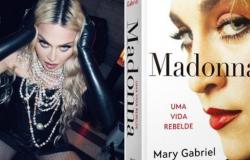For Shakira, 2022 was a year of heartbreak. Decades of Latin pop crossover successes and innovations have failed to protect the Colombian pop star from personal upheavals. Under the celebrity couple’s spotlight, she ended her relationship with football player Gerard Piqué, her partner of 11 years and father of her two children, Milan and Sasha.
His father was hospitalized twice for a fall that caused head trauma; he ended up needing additional brain surgery in 2023.
Shakira also faced tax evasion charges in a long-running case questioning whether she had lived primarily in Spain from 2012 to 2014; she declared residency there in 2015. Last November, she agreed to pay a fine of 7.5 million euros (about R$40.5 million), citing “the best interests of my children.”
Just a few days earlier, Shakira had received the Latin Grammy for song of the year for “Shakira: Bzrp Music Sessions, Vol. 53,” a collaboration with Argentine producer Bizarrap with puns clearly aimed at Piqué and his girlfriend.
The song was one of several songs Shakira released directly about the breakup: the sarcastic “Te Felicito”; the regretful “Monotonía”; the session with Bizarrap, “Acrostic,” a ballad promising her children that she would remain strong; and “TQG” (“Te Quedó Grande”), a provocative reggaeton duet with Colombian star Karol G, who also went through a public breakup. “TQG” has accumulated over 1 billion streams.
These songs reappear on Shakira’s first album since 2017, “Las Mujeres Ya No Lloran”, released this Friday. Almost every track deals with romantic highs and lows, shaped into crisp, melodious pop structures.
The album continues Shakira’s career-long trend of bringing together music and collaborators from across America, exploring rock, electropop, trap, Dominican bachata, Nigerian-style Afrobeats, and regional Mexican cumbia and polka. Her guests include Cardi B, Ozuna and Rauw Alejandro. None of them overshadow Shakira, who is as playful or raw as each moment demands.
Shakira talked about the album in her white-walled kitchen in her Miami home, where an air fryer sat on the counter behind her; a pet rabbit in a pen was next to her.
Unlike Barcelona, Miami is a hub for Latin pop where, according to her, “I have the feeling that I’m going to make a lot more music now.” Wearing a black tank top, with her hair in long blonde waves, Shakira spoke happily and expansively about an album that, for her, was “alchemical.” These are edited excerpts from the conversation.
Does the album tell a story? In the first few songs, you’re wondering how to hold someone. But in the end, you are quite irritated.
There is a narrative. It’s a concept album without being my initial intention. You know, no one plans to go through a breakup like I did. And the breakup of a family — it’s probably one of the most painful things a human being can experience. But happened. If life gives you lemons, make lemonade. That’s what I did with this album — I used my own creativity to process my frustration, my anger, and my sadness. I transmuted or transformed pain into productivity.
The album’s title, “Las Mujeres Ya No Lloran”, comes from the song that confronts the breakup more specifically: “Bzrp Sessions No. 53”.
It was the most direct. But I started talking about what was happening to me through “Te Felicito” and “Monotonía”. On video [de “Monotonía”], I leave with a hole in my chest, because that is exactly the physical feeling I had when I was going through my loss. I almost felt like people could see through my chest, see what was behind it. But with every song I wrote, I was rebuilding myself. It was like putting my bones back together. That’s why I decided to choose this title, “Las Mujeres Ya No Lloran” —”Women Don’t Cry Anymore”. Crying in itself will always be a survival mechanism for human beings. It’s an important part of life. And I feel like we women today don’t need to be told how we should heal, how we should lick our wounds. We are the ones who have to move forward and preserve our species, preserve the survival of our offspring — the wolves that we are.
One of the new songs, “(Entre Paréntesis)”, ends with you bringing back the howl of “She Wolf”.
The wolf is all over this album. The wolf was what helped me rebuild myself. I had my moments where I howled at the moon, licked my wounds. And I connected with this primal woman within, just to sing and dance her pain, to exorcise her. I think women have this special strength and intuition — this natural survival instinct. When we really want to survive a situation, we just need to find that being within ourselves — to protect the pack. I’ve also found extreme support from women who have been through worse situations than me and who have taught me incredible lessons. Society has, for centuries, placed us in a place of victims — since the Inquisition, when they burned us at the stake. But I believe women are rebelling against this. We just need to fight for what we want and heal however we want. At some point, those tears need to turn into tears of triumph.
Did your popularity, your celebrity, help you get through these difficult years?
Not the fact of being a celebrity. Not only did I have to face the breakup of my family — I had to do it with journalists at my door, with people talking about it, with myself learning things from the press. It was really extremely painful. But my fans just know me, understand me and forgive my mistakes, and support me, whatever decision I make. I get emotional when I talk about it because I honestly never thought they would show up the way they did. But they showed me the best version of myself, and made me believe that I’m worth it and that I should move forward. You know, they and my kids have definitely been the biggest help, the biggest support that I’ve received.
I also had people who turned their backs on me — people who worked for me and betrayed me. And I had to face everything at the same time. And then my father suffered a terrible accident that left him neurologically compromised. My dad was always my best friend, so he wasn’t there to give me his best advice when I needed it most. It was a period of extreme pain. Just writing the songs allowed me to rebuild myself.
Over the years, you’ve done all sorts of duets and collaborations, and there are many more on this album. How do you decide who will do a song with Shakira?
It is not a premeditated process. I think each song has its own demands. For “Punteria” (“Mirando”), I thought, “How cool would it be to have a female rapper here?” The only person that came to mind was Cardi B. I had just met her in Paris and she seemed so cool. So I reached out, sent her the song, and she jumped on it immediately. It was truly a great pleasure to work with her. I think she is so creative, witty, direct and unapologetically genuine.
You did two lively songs with regional Mexican style bands, Grupo Frontera and Fuerza Regida.
Colombia and Mexico have always had very close ties, and it was wonderful to experiment with this genre. One of the best studio sessions I’ve ever had was with Grupo Frontera. I had just finished surfing in Malibu, and I went to the studio with my hair still wet, and they were there. They came in with this pure, genuine energy. We improvised this song, and it was one of the most fun and stimulating moments I’ve had in the recording studio — a true musician’s moment.
“El Jefe,” the song with Fuerza Regida, isn’t about love or heartbreak — it’s about an underpaid worker who hates his boss.
I wanted to lend my voice to those who have no voice. There are many people who cannot talk about their bosses. And in the video, he brought a Colombian Paso Fino horse. He has an incredible trot because he dances to the music, and I got to ride him!
“Última” feels like one of the most emotionally exposed songs on the album —full of feelings about regret and memories and deciding not to go back.
It was the last song on the album, and that’s why I called it “The Last”. We had all the tracks ready, but I was like, No, I can’t end this album. I’m going to choke on this song. This one is stuck here, it’s a cyst, I need to get it out. So I went into the studio, produced it and wrote it, and finished it and sang it in one day. And it’s also the last song I intend to write about, you know who and he who shall not be named: Voldemort.






